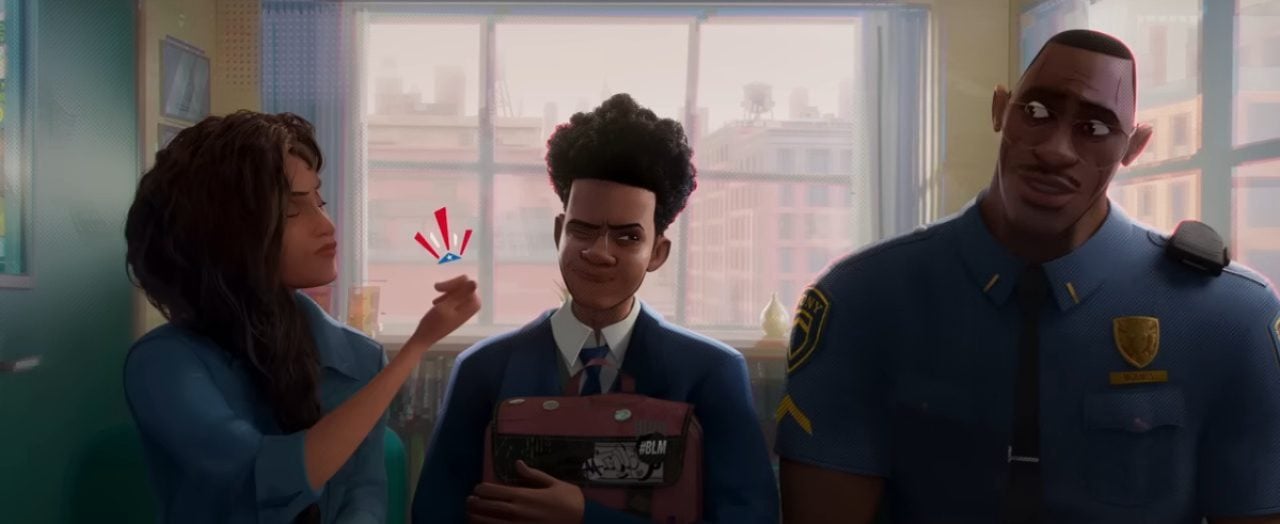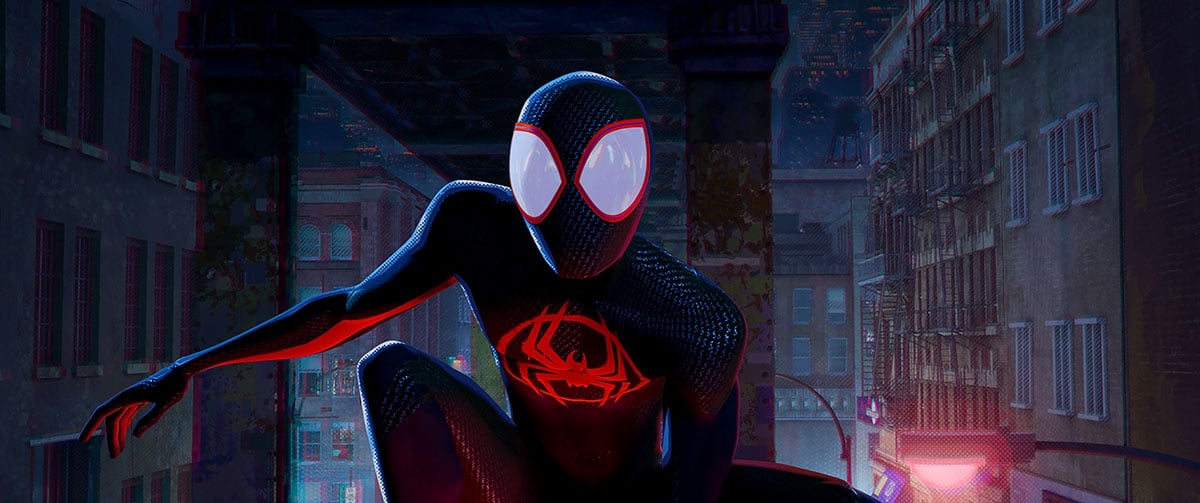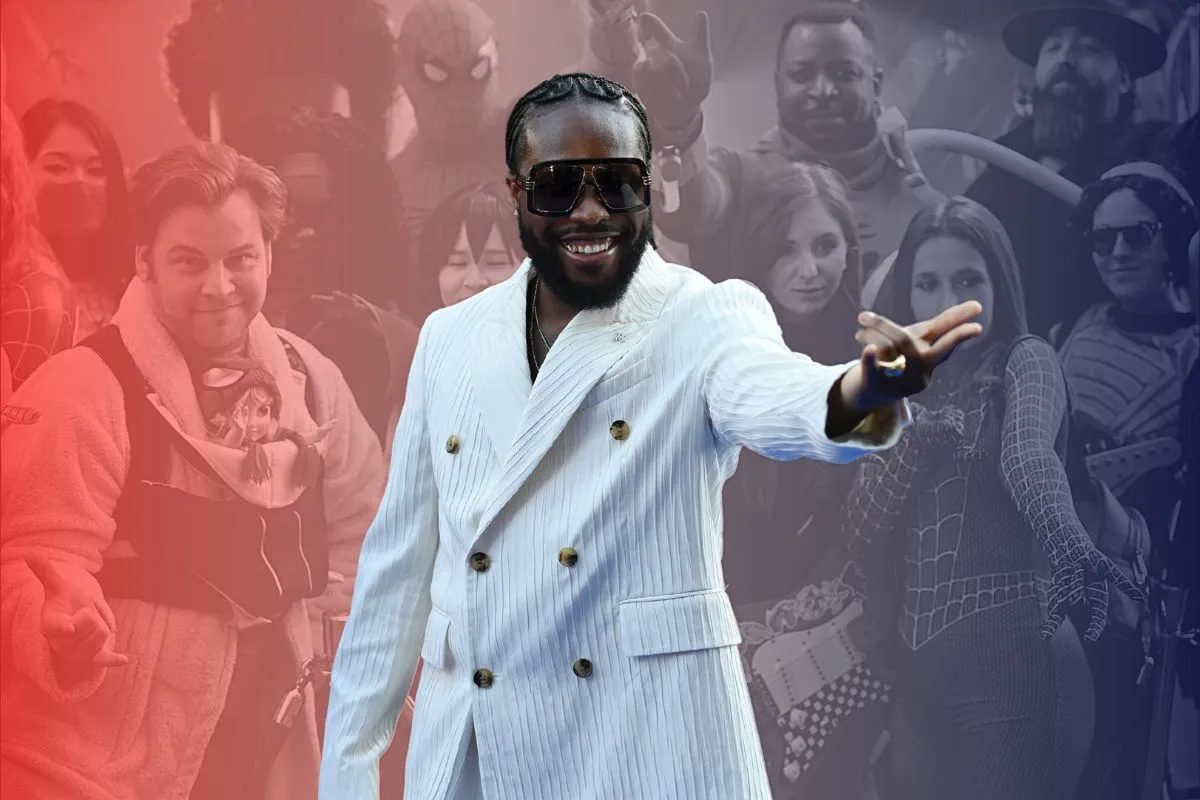At the premiere of Spider-Man: Across the Spider-Verse, Sony Pictures Executive Amy Pascal teased that a live-action Miles Morales movie was coming in the future. Even before this interview with Variety, fans of the comic and tv/movies have wished for a variety of actors to play the part. For a number of very valid reasons, almost no one was floating the name of the voice for Miles in the animated film, Shamiek Moore. However, the star has been increasingly adamant in making the case for casting him in a live-action version of the role.
At first, many took Moore’s interest as a joke and fun banter like “haha what if, right?” Something to add a little spice to the press tour for Across the Spider-Verse that wasn’t awkwardly flirting with his co-star Hailee Steinfeld. However, Moore has quadrupled down on this in a serious tone to the point where he’s talking about slimming down and seemingly subtweeting naysayers.
These subtweets lend credence to his desire to seriously pursue this role, not being just banter for a long press junket. No one is debating that Moore is the voice of this (animated) Miles—the main character Miles whom many were first introduced to beyond the comic. However, there are reasons a mile long as to why he shouldn’t go for this role, and none of these are a lack of talent.
Miles Morale’s background

One of the defining features of Miles is his Afro-Puerto Rican heritage. Many people see the character as a Black kid from Brooklyn. However, his Puerto Rican heritage is just as important even if it’s rarely alluded to in the foreground unless his mother is around. This is in part due to our flattened understanding of race and ethnicity—two very different things. Because of the commercialization of Black culture and America’s (over) familiarity with it, the team behind the Spider-Verse films leaned into the Black American aspect of Miles.
All of this could beg the question, should Moore have even taken that role, to begin with? Frankly, no. Not only did he take a role from an Afro-Latino (specifically Afro-Puerto Rican), he learned in real time he was out of his depth to discuss what Miles meant to Afro-Latines. What’s worse is that Moore hasn’t really recovered or appeared to educate himself since. For example, when discussing identity Moore often uses ‘Spanish,’ ‘Hispanic,’ and ‘Latino’ interchangeably. He has invoked “I have a lot of Hispanic friends” as a point of excitement when taking a Latino role. Despite recently saying he manifested playing Miles Morales back in 2013 (two years after the character’s creation), he’s expressed multiple times over the years surprise that Miles is Puerto Rican—even after recording parts of the movie in Spanish.
Anyone of any racial background can be Latine because this is an ethnicity. Most people in Latin America, are some part Indigenous, Black, and/or white. The Europeans traveled west, and Indigenous people were already there. During the Trans-Atlantic Slavery Trade, 96.5% of all enslaved Africans were trafficked into Latin America by Europeans. Afro-Latine erasure in media and history is both a U.S. and Latin America issue. On occasion, Moore has discussed his family’s Caribbean heritage. The Caribbean’s inclusion as part of Latin America is heavily debated and has its own anti-Black history. However, it doesn’t matter here because Moore has never identified as Latine or Afro-Latine. Like most Americans, he didn’t know the Afro-Latine identity existed until recently.
The desire to be seen on screen in some capacity and not criticize one of the most creative films in the last decade, has let a lot of this (and his anti-Black comments about Rosa Parks, etc) go unchecked. Regarding ignorance, Moore’s stumbling still could have happened with an Afro-Latine actor. Many Afro-Latine performers have made some anti-Black comments (Gina Torres and Dascha Polanco come to mind.) However, that doesn’t mean that the roles shouldn’t have gone to someone of that heritage. A live-action interpretation of the character could correct some of the less savory elements of these incredible films.
Age is not just a number

In addition to Miles’ Latine heritage, Moore also wouldn’t work due to his age. Discounting the children’s show Spidey and His Amazing Friends, between the comics, movies, and games, Miles is a teenager. In Into The Spider-Verse (2018), Moores plays a 14-year-old Miles at age 21. Now, Moore is 28. Keep in mind the film hasn’t even started the writing process. So filming would likely not even being for another 2+ years when he is 30.
Yes, Andrew Garfield was 27, and Tobey Maguire was 26 when each of their respective Spider-Men films began shooting—meaning they reach thirty in later films. However, as much love as we have for those films, this was not a great move by Sony. As a voice actor, Moore pulls off a convincing teenager, but that won’t work in a live-action setting.
A smaller, but no less significant reason Moore shouldn’t portray a Miles while pushing 30 is because of his race. Regardless of gender, Black children face harsher punishments and policing because they’re perceived as older than they actually are. This adultification robs them of their childhood and doesn’t account for parents holding them to a higher standard as a way of protecting them. This extends horrifically to sex crimes as society views Black children as more knowledgeable, promiscuous, and less likely to be the victims in an encounter. Beyond mountains of studies showing evidence of adultification, there’s also been a number of high-profile murders of Black children. With both Tamir Rice (12) and Trayvon Martin (17), their aggressors claimed they looked like adults. So, it’s not fair, but age is beyond a slight consideration for the part. Especially if this live-action Miles will be a teenager like in the comics.
**Spoilers for Across The Spider-Verse ahead.**
Passing the torch

Age and ethnicity are also two things he can’t change and this is not an issue of talent. Based on Moore’s responses to those opposed to his hypothetical casting, it looks like he believes that reaction comes only from people who don’t believe in his acting ability. That couldn’t be farther from the truth. His acting ability is so good that he routinely gets comments about how they’re surprised that the voice actor for Miles looks like him. That’s Moore’s talent and some movie magic. Because we’re in the age of multiverses, Moore could be a live-action Miles in a cameo appearance. This would be similar to Donald Glover appearing as a version of Prowler. Glover was one of the inspirations for Miles, but Moore got the part. I’ve already pitched a Halle Berry as a non-primary Storm in the MCU.
Equally as important as getting a live-action Miles Morales right would be giving the opportunity for Afro-Latinos to see themselves. The creator of Miles (as well as Riri Williams and Jessica Jones), Brian Michael Bendis, has stated that his two Black daughters are part of his inspiration to help create more characters of color. A desire to have representation for a younger generation is part of Miles’ DNA. With all but about two well-established Afro-Latinos being in their mid-twenties, this would also be a great chance to find someone a little less well-known. I’m personally rooting for Miles Brown or Jaden Michael. However, a fresh face could mean another Black Puerto Rican boy can gain a momentous opportunity.
(featured image: Kate Green/Getty Images / remixed by Alyssa Shotwell)










Published: Jun 23, 2023 06:09 pm